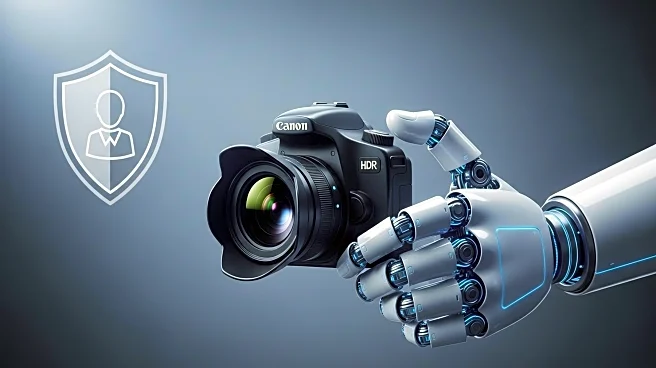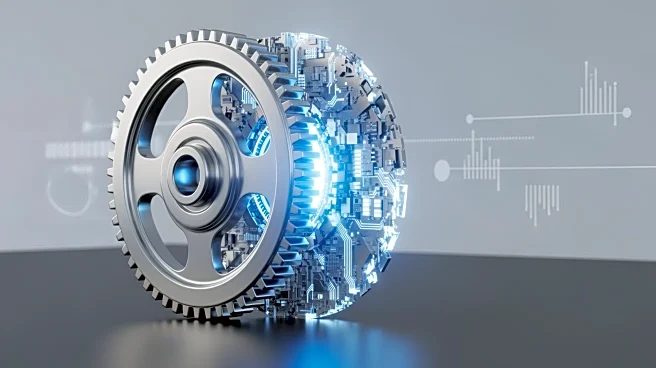What's Happening?
YouTube has announced the introduction of new AI-powered tools aimed at enhancing video creation and user protection on its platform. These tools include features for easier video editing, generating short clips, and safeguarding user likenesses from unauthorized AI use. The initiative is part of YouTube's effort to keep pace with other AI-driven companies like OpenAI. A notable addition is the Veo 3 Fast model, developed in collaboration with Google DeepMind, which allows users to create quick, scrollable videos on YouTube Shorts. This model offers faster video generation with sound capabilities and is available in several countries, including the U.S., U.K., Canada, Australia, and New Zealand. Additionally, YouTube is testing an 'Edit with AI' tool that automates the editing process by selecting key moments, adding music, transitions, and voiceovers. To address potential misuse of AI, YouTube is expanding a likeness-detection tool to help creators protect their facial likenesses from being deepfaked.
Why It's Important?
The introduction of AI tools on YouTube signifies a major shift in how content is created and managed on digital platforms. By leveraging AI, YouTube aims to empower creators with advanced editing capabilities, potentially increasing the quality and quantity of content produced. This move could enhance user engagement and attract more creators to the platform, thereby boosting YouTube's competitive edge against rivals like TikTok and Instagram. Furthermore, the likeness-detection tool addresses growing concerns about privacy and unauthorized use of personal images, offering creators a means to protect their identities in the AI era. This development could set a precedent for other platforms to implement similar protective measures, influencing industry standards for user privacy and content authenticity.
What's Next?
YouTube plans to expand the availability of its AI tools to more regions and introduce additional features on Shorts, such as animating photos and videos, applying visual styles, and adding objects to videos. The company is also working on rolling out the 'Edit with AI' tool to select markets, which could further streamline the content creation process for users. As these tools become more widely accessible, YouTube may face scrutiny from privacy advocates and regulatory bodies regarding the ethical implications of AI use. The platform's approach to managing these concerns will be crucial in maintaining user trust and compliance with privacy laws.
Beyond the Headlines
The integration of AI into YouTube's platform could have broader implications for the digital content industry. It may lead to a democratization of video production, allowing individuals with limited technical skills to create professional-quality content. This shift could alter the landscape of content creation, with AI-driven tools becoming standard practice across various platforms. Additionally, the focus on user protection highlights the growing need for ethical considerations in AI development, prompting discussions on the balance between innovation and privacy.









